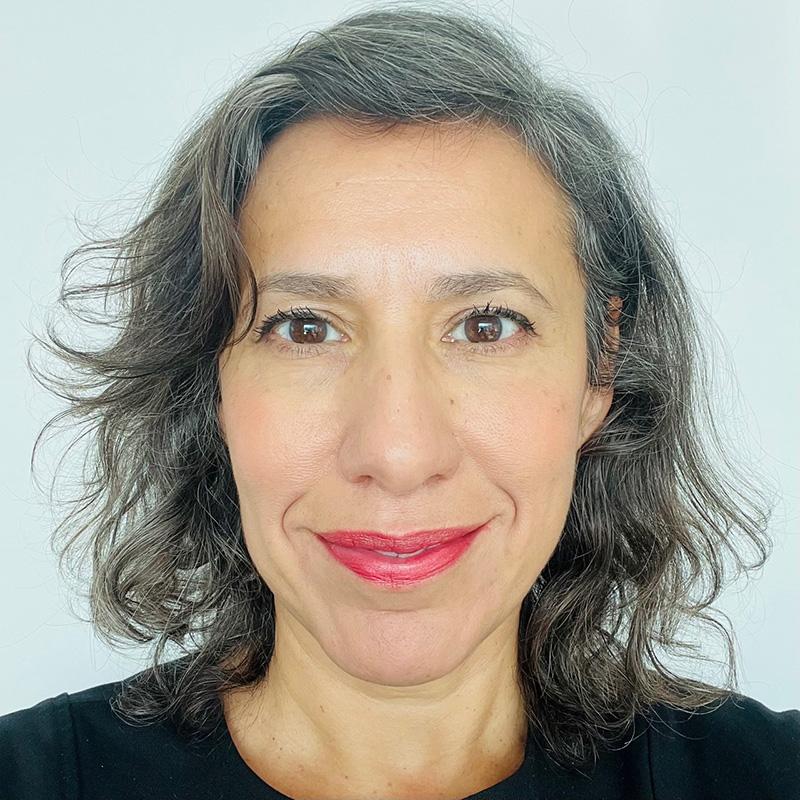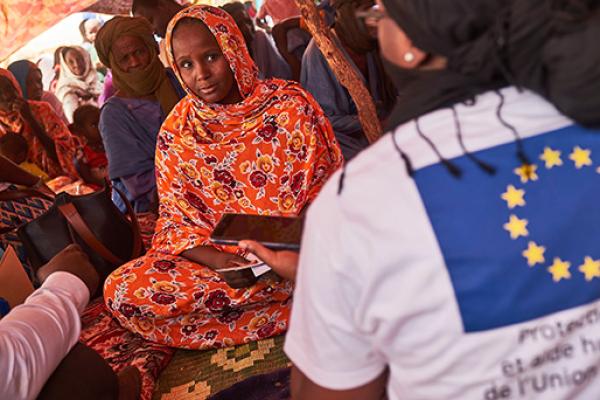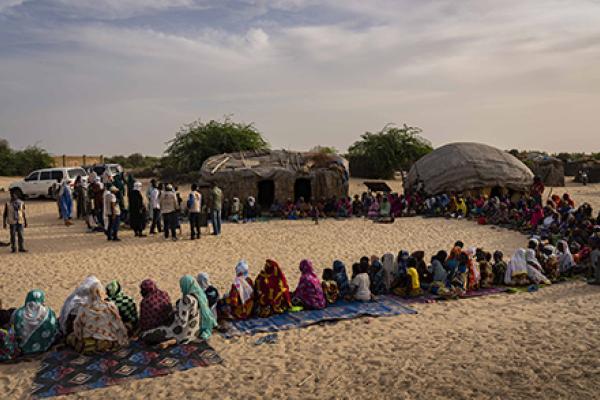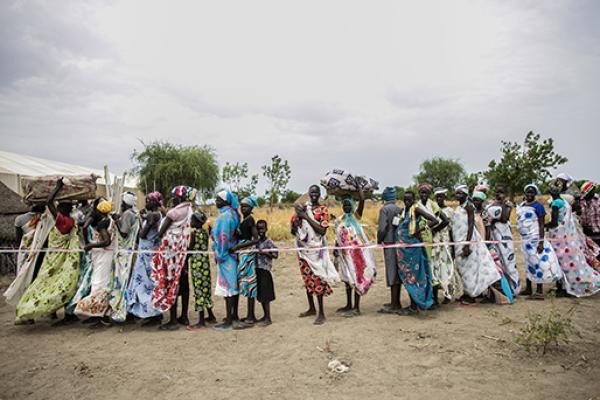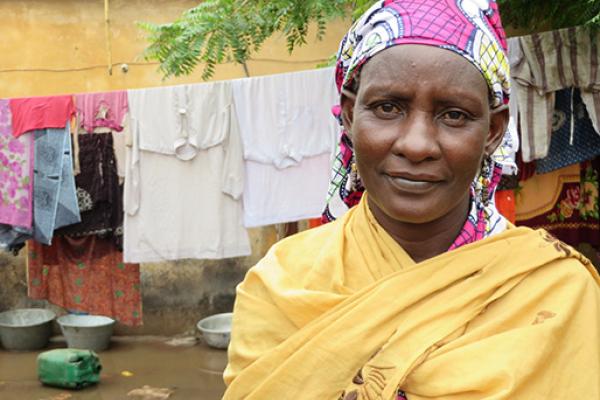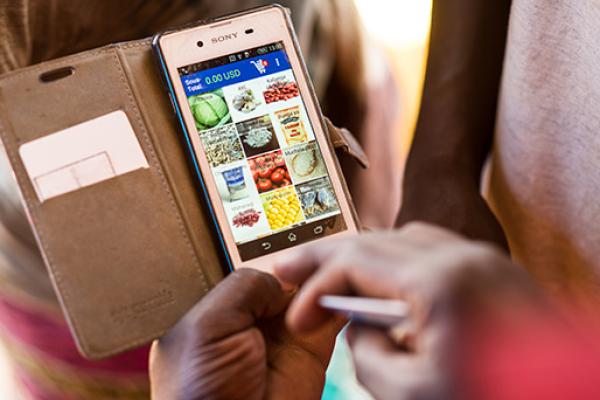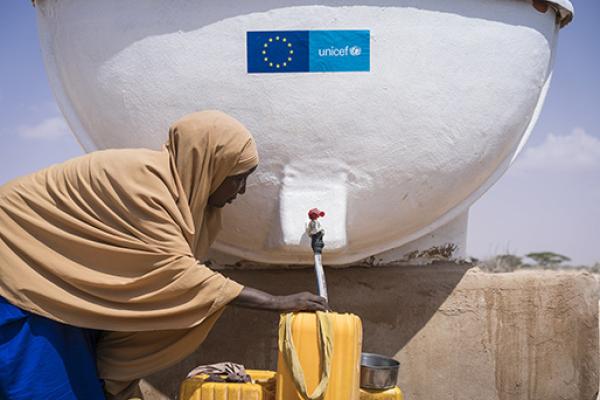Civilians in northern Mali are caught in the crossfire of an escalating conflict. Often wrongly associated with non-state armed groups, they bear the brunt of retaliatory attacks, with violations perpetrated by all parties to the conflict, and suffer from the absence of basic services. As of 2025, 6.4 million people—28% of the population—require humanitarian assistance in Mali. The crisis is most severe in northern and central Mali, where conflict has displaced communities, increased vulnerabilities, and restricted access to essential services.
In Mauritania, following a surge in refugees in 2024, the EU provided €7.2 million to support vulnerable Malian refugees and Mauritanian host communities, particularly during the lean season. Assistance includes cash assistance, water and sanitation, refugee registration, and protection services. Humanitarian flights to remote eastern regions are also funded to ensure aid workers and supplies reach the areas where most refugees arrive.
Fadila * led her mother, 5 children, daughters-in-law, and grandchildren to safety in Mauritania. Totally exhausted, they have been helped by people in the village to pitch up a tent to recover from the harrowing journey. Many women fled leaving the men and animals behind.
Community elders say many women arrive alone with their children. Those who are not driven away by physical insecurity are now driven away by economic insecurity. They are grateful to Mauritanians for welcoming them and for finding safety from attacks.
“More than 10 people I know were killed. I left the next day,” says Hawa*. From the border, she travelled to M’bera camp. “I don’t know anyone here, but I met kind souls who guided me. I have no way of contacting my husband. I don’t know where he is.”
Douenkara village, on Malian-Mauritania border, is the entry point for many. “They’re killing the wrong people, there is no criterion, just anyone who crosses their path. They’re going from village to village pillaging and killing,” said Abdourahman.
“At first, I thought he was after my jewelry, but then he started touching me all over.” Fatma* was certain one of the ‘white men’ intended to rape her. A sudden commotion outside disrupted his assault. After burying their dead, the villagers fled.
Hung up by their necks in a tree, almost decapitated, shot without any question asked - numerous are the testimonies of villagers from northern Mali who are reeling from the attacks. They want to return home, but they know it is no longer safe for them there.
Many nomadic herders have lost all their cattle. Those whose animals were not stolen and were able to drive them to Mauritania, saw them perish from illness or from lack of pasture and water during the dry lean season.
The extreme climate in the Hodh El Chargui region is worsening, raising water concerns for both refugees and Mauritanians. Livestock herding, once reliant on cross-border grazing, faces disruption, threatening livelihoods on both sides of the border.
The majority of the 160,000 refugees in eastern Mauritania have arrived since January 2024. The EU supports UNHCR to step up the registration of newcomers since their protection and assistance depend on it.
Biometric data are collected through fingerprints and iris scans. Many Malians have no identification, their documents burnt, torn up, or left behind. Rigorous registration is therefore indispensable to determine their refugee status.
Emergency cash assistance is a cost-efficient way of providing aid to newly displaced people. It helps them absorb the shock of the unexpected flight and go out to find food and the other essentials their families need.
As northern Mali becomes more dangerous and less accessible, its inhabitants face uncertain times; maybe even a life-long exile abroad. Mauritania, at least, offers a haven where refugees can rest, take stock and find help.
*The names of refugees have been changed for protection reasons













